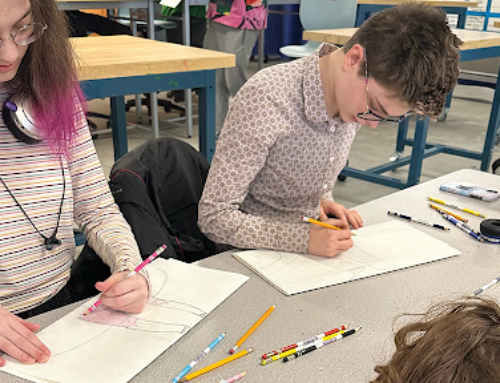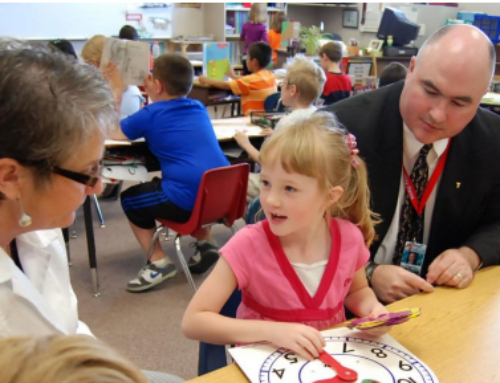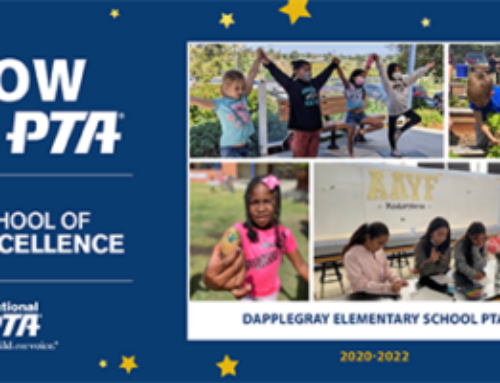
Strong advocates for public schools know how to pace themselves. Creating equity and lifting the voices of all students and educators takes time, patience and boundless energy. It’s a marathon, not a sprint, and Rochester High School track coach and behavior interventionist Pamella Johnson is going the distance.
For her tireless work advocating for paraprofessionals, Black, Indigenous, People of Color (BIPOC), and equity in education, Johnson has been named the NEA 2023 Education Support Professional (ESP) of the Year.
As a behavioral interventionist, Johnson uses her skills and expertise to ensure her students’ emotional, social, and academic needs are met. Additionally, Johnson has used her platform at her high school and as a member of NEA to fight for equity-based practices in public education and her community.
“NEA has chosen to honor Pamella because of her extraordinary work and compassionate care for her students,” said NEA President Becky Pringle. “She is relentless in her commitment to ensuring students’ emotional needs are being met, something that is critically important, yet often overlooked in education systems. Particularly now, in a national mental health crisis, we want to uplift education professionals, like Pamella, who are dedicated advocates for the needs of students and the community.”
Johnson gets to school at 7:30 each morning, spending her day with students with high behavioral risks, helping them identify their behavior triggers and getting their emotional needs met so they can focus on academics. It’s demanding work, but her day doesn’t end there. She then goes on to coach the high school varsity track team or attend student meets, often getting home after 9:00 p.m.
She puts in long days at Rochester High, and works just as hard in her community. She serves as Washington’s ESP lead for Culturally Responsive Teaching and Classroom Management Courses; on the state’s governor-appointed Paraeducator Board; as Board Member and Treasurer for Washington State Ethnic Studies Now; and on the School to Prison Pipeline committee with the League of Education Voters.
“I genuinely believe in the importance of representation for students of color and neuro-divergences to the overall improvement of our public education,” Johnson said. “A student’s experience is so much more than tests and what they do inside the classroom, they deserve to be seen and supported as whole people—this includes their mental health and overall wellbeing. I do what I do because I love what I do.”
The oldest of eight children, five of whom are educators, Johnson grew up knowing she wanted a career in education. Though she detoured for a few years into the corporate world, she returned to education more than 10 years ago and has worked at Rochester High ever since. For the last four years she has served as a social emotional and behavior interventionist, a role that has become critical for students during the pandemic recovery.
“I love my students,” she says. “I love how authentic relationships make it possible for students and educators to come together to map a way to success.”
Johnson works hard to ensure she’s welcoming, visible and supportive to all students, but she stresses the importance of being among very few Black educators in her rural district. When students see her, they see what they could be in the future.
“I love what students bring to the table,” Johnson says. “Teenagers are still growing up and looking to grown-ups to guide them to be members of society. We’re there for them.”
Johnson attributes her dedication and drive to her own track coach from eighth grade, Coach Hawkins. Hawkins was the only Black woman in the school district, and she took time to be intentional and authentic in connecting with student athletes, Johnson says.
“Coach Hawkins taught me what inequities were and fought for us girls to have the same resources the boy athletes had,” Johnson reflects. “She gave us what we needed to survive and I’m proud to pass that torch on to my students.”
By helping form new clubs and activities on campus, she has provided students with an outlet to share their experiences. For example, she helped launch Rochester High School’s first ever student equity advisory committee, which assists in identifying areas of growth for staff and students, which has had a tremendous impact on members of the BIPOC community who now feel seen and heard.
“I go above and beyond my duties and responsibilities by taking the time to create authentic positive relationships with students to assist them in making the best decisions as it applies to their educational journey,” Johnson says.
Johnson received the award at a ceremony March 25 in Seattle during the 2023 NEA ESP National Conference, the largest convening of education support professionals from across the country. As NEA’s ESP of the Year, Johnson will serve as an ambassador for ESPs across the country, speaking about the work and importance of ESPs at local, state, and national events.
The NEA ESP of the Year award is designed to spotlight the work of education support professionals across the country and honor one member who has demonstrated extraordinary achievements and dedication to public education. ESPs are the bus drivers who get our students to school safely. They are the custodians who keep our school buildings and grounds clean, the cafeteria workers who ensure our school communities are fed, the paraeducators who meet the needs of our most vulnerable students, and so much more. They are essential members of the educational team who work at every level of education—from pre-school to university graduate programs.
“Pam is truly amazing,” said Washington Education Association President Larry Delaney. “From her day job as an ESP at Rochester High School, to being a track and field coach, to running for school board in her home district of North Thurston, to serving on the WEA Board, as the chair of the Washington State Paraeducators Board, and serving on the NEA Board, Pam is the living embodiment of a servant-leader.”
Johnson has been instrumental in raising ESP needs in all of her advocacy work, stressing the urgency of getting respectful pay and appreciation for the important work of all ESPs. As a member of the Paraeducator Board, Johnson will help set policy around paraeducator training, certification and standards. The Board, created in 2017 as a result of successful WEA member advocacy, is currently reviewing the state’s new standards for cultural competency, diversity, equity and inclusion (CCDEI) training.
“Now more than ever we need to attract more ESPs and stop ESPs from leaving the field and the way to do that is by addressing livable wages,” she says. “We need to support and appreciate ESPs for what we do and make the work rewarding.”
“Our work is critical to all that goes on in schools, from custodians to office staff to food services to paraeducators, we make the school run,” Johnson adds.
“We’re first to open and last to leave. And we love it.”
View the original story here.




